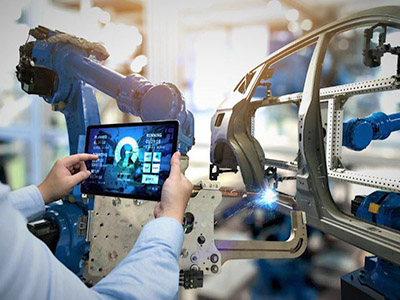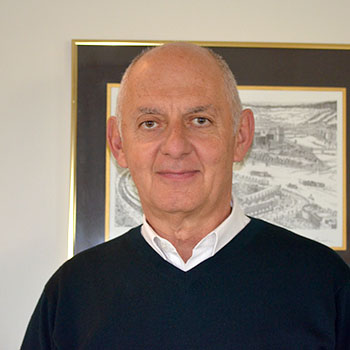Digital Systems Applications in Industry
Module ID
Ε610
Semester
6
Hours/Week - ECTS
4 – 5

Samaras Nicholas
Professor
Learning Outcomes
Upon successful completion of the course, the student will be able to:
- Recognize and evaluate several types of systems and their characteristics.
- Understand the operation of real-time systems.
- Develop Real Time programming skills.
- Understand the principles of designing, operating, and programming software applications for integrated industrial production systems.
- Understand the concepts of the information model of Industry, and integrated production systems.
- Analyze and synthesize Distributed Control Systems, closed and open architecture, Supervisory Control Systems, and data collection.
- List industrial software design principles and tools.
- Describe the principles of industrial data and control networks.
- Synthesizes his knowledge to create software applications for industrial process control.
Indicative Module Content
- Informatics model of Industrial Organization.
- Principles of operation and programming of integrated production systems (CIM).
- Distributed control systems (DCS) of closed architecture.
- Real-Time Control Systems, with security criticality.
- Supervisory control and data collection systems (SCADA).
- Distributed open architecture systems.
- Programmable logic controllers (PLC).
- Hardware and Software of Industrial applications. Computers in production. Availability of Computer Systems. Equipment Maintenance Information Systems.
- Software development standards for open architecture industrial control systems.
- Programming languages, Software engineering tools.
- Industrial Software Technology, quality standards, operating systems, field controllers, resource management systems.
- Real-time programs and databases. Communications and synchronization.
- Mathematical models and simulation. Virtual reality in the industry.
- Industrial computer networks, wireless industrial networks.
- Examples of software development for automatic control of industrial processes.

